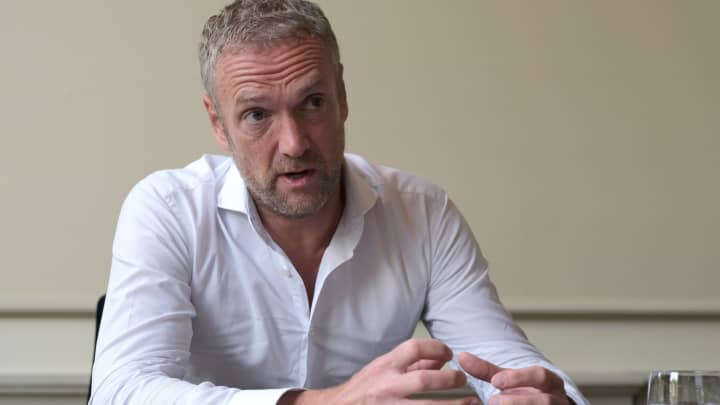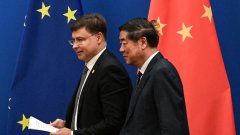
The immediate and mutually agreed departure of Naspers and Prosus CEO Bob van Dijk underscores a complicated few years for a firm seen riding on the coattails of its holdings in Chinese tech giant, .
In June, the Dutch-based e-commerce investor, Prosus, which is majority-owned by South African multi-national Naspers won shareholder and regulatory approval to unwind its complex ownership structure.
The South African Reserve Bank gave Naspers the greenlight to begin buying back more of its shares from Prosus.
Prior to the current structure, Naspers (headquartered in South Africa) owned a third of Chinese internet giant Tencent Holdings. This was an investment made by current chairman and founder of Naspers, Koos Bekker, as early as 2001, when he paid $34 million for a 46.5% stake in the business.
Van Dijk oversaw the decision to split off its holding of Tencent and other tech holdings into Prosus in 2019. In the meantime, Tencent's market capitalization rocketed close to $1 trillion as the stock boomed during the Covid-19 pandemic. This meant Naspers made up nearly a quarter of the Johannesburg Stock Exchange which was a problem for some fund managers.
Then in 2021, Naspers developed a crossholding . Prosus issued new shares to buy a 45.4% stake in Naspers, and this effectively moved a slice of Naspers from the Johannesburg exchange to Amsterdam's Euronext.
But that crossholding offered little value to investors with at the time: "They [shareholders] said we don't like this cross holding, it creates complexity. We've listened to them. And we're basically getting rid of that now."
On Monday the business also announced, on a call with investors, that the unwinding of the crossholding had officially been completed with the business now aiming to maintain profitability going into the first half of the 2025 fiscal year.
Erwin Tu, Prosus' group chief investment officer has been named interim CEO, with Citi saying in a research note that it sees "a good chance of him becoming permanent CEO.
"We suspect the decision has not been sudden, but rather one the company preferred to announce following the completion of the unwind of the cross-holding process," the Citi analysts said.
Tu was previously a managing partner at the SoftBank Vision Fund where he also co-led M&A and corporate finance for SoftBank Group International. He was also managing director in the technology banking group at Goldman Sachs.
On the Investor call, Bekker said that while Tu had only joined the business in 2021, he was now stepping up and would enjoy the same autonomy as van Dijk, despite this only being a temporary appointment. Bekker also said that the process of finding a new CEO was not one that focused only on internal applicants or candidates but that the lengthy process would also look at external leaders as well.
Tu said the business will continue to "invest in a disciplined way" and that the share repurchase will remain in place for as long as the discount on the net asset value of the companies remained elevated.
Shares of the Naspers slipped 3% Monday in South Africa on the back of the news of Van Dijk's departure, despite an initial rise of 2% in early deals.
Van Dijk has agreed to remain as a consultant until September next year but has stepped down from the board of both businesses. The company said the group's strategic goals "remain unchanged and it is on target to deliver on its commitments."
Van Dijk's recent pay had come under fire with shareholders objecting to how it was tied to the growth and performance of Tencent. Eighty-percent of Naspers' decision-bearing shareholders voted against the company's remuneration policy. Van Dijk reportedly earned 13.5 million euros and 14.2 million euros in 2021 & 2022 with his pay slashed to




